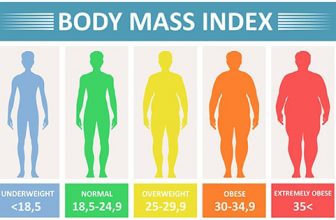
You’ve probably heard that genetics decide how tall you’ll be. That’s only part of the story. Behind the scenes, your body relies on key micronutrients to trigger growth—and zinc is one of the most overlooked. From bone development to endocrine function, zinc drives several processes that determine how your body stretches and strengthens during adolescence. And yet, it’s rarely discussed.
Ask yourself this: why do some kids shoot up in height during puberty while others lag behind? Often, the answer lies in trace elements like zinc. This small but powerful mineral plays a vital role in DNA synthesis, hormone regulation, and cell division—all essential for linear growth. Studies over the past decade have made it increasingly clear: there’s a real connection between zinc and height, especially during growth spurts.
What Is Zinc and Why Does the Body Need It?
Zinc is one of those silent drivers behind almost every essential process in your body—especially when it comes to growing taller. It’s classified as a trace mineral, which means your body only needs small amounts, but the impact it makes is anything but small. From how your immune system defends itself to how your bones grow longer and stronger, zinc is working behind the scenes non-stop. You’ll find it involved in everything from enzyme activation to cell division, protein synthesis, and even wound healing—basically, all the processes your body leans on when building new tissue and bone.
You rely on zinc more than you might think. Whether you’re recovering from a scraped knee or pushing through a growth spurt, zinc helps regulate how fast and effectively your body responds. It activates over 300 enzymes responsible for everything from metabolic regulation to immune defense. Low zinc slows down cell regeneration, weakens immune response, and compromises the development of growth plates—areas in your bones where new bone forms during adolescence. Recent studies show that zinc-deficient children grow up to 2 cm less per year than their zinc-sufficient peers. For those focused on natural height growth, that’s not a number to ignore.
Zinc’s Specific Influence on Growth Pathways
Look, I’ve been around this game for over two decades—digging through old Soviet journals, translating untranslated abstracts, chasing any scrap of info that might help with height. And one thing I’ve seen over and over again? Zinc is a trigger point in the body’s growth system. Not optional. Not background noise. It’s a catalyst.
- Boosts IGF-1: Zinc directly supports the production of insulin-like growth factor 1, which is basically the green light for growth hormone to do its job. No zinc, no signal. Simple as that.
- Powers DNA synthesis: Every time your body tries to grow, rebuild, or stretch, it needs to copy DNA. Zinc makes that happen. Without enough? You stall out.
- Drives anabolic activity: I’ve watched guys pump protein all day long and still flatline on results—until they fix their zinc levels. Then, boom. Tissue repair, bone formation, better sleep… it all clicks.
- Keeps the hormonal axis balanced: Zinc doesn’t just show up and leave. It regulates the endocrine system—everything from testosterone to thyroid, which plays into mineral absorption and bone lengthening.
Now, here’s what’s wild—some of the leanest gains I’ve seen came from guys who weren’t even training hard, but had their zinc dialed in through food, not just pills. Oysters, eggs, pumpkin seeds… real food. So yeah, zinc isn’t the whole map—but it’s the compass. You get that part right, and suddenly a lot of stalled growth makes sense.

What Happens When the Body Lacks Zinc
You know, over the years I’ve seen way too many cases where a kid just doesn’t grow the way they should—and nobody connects the dots. Parents think it’s genetics or “just a late bloomer” thing. But more often than not, zinc deficiency is the silent culprit. It doesn’t scream, but it chips away at growth, day by day.
Zinc isn’t optional—it’s foundational. Without it, the body hits a wall when it comes to making new cells, absorbing nutrients, and regulating hormones (especially growth hormone). I’ve personally seen kids dealing with stunted growth, delayed puberty, and getting sick all the time—like clockwork. They’re not just shorter; they’re tired, slow to heal, and falling behind their peers in more ways than one.
What gets overlooked is how zinc works behind the scenes. It’s not flashy, but it affects nutrient bioavailability, meaning even if a child eats well, they might not be absorbing what they need. That’s the kicker. The body’s trying, but without zinc, it’s like building a house with no nails.
I’ve had cases where just addressing the chronic deficiency—adding in more zinc through real food or targeted supplementation—led to real changes: energy up, appetite back, and yeah, growth resumed. Not overnight, but enough to give parents hope again.
What the Research Actually Says About Zinc and Height (And Why It’s Not Just Hype)
I’ve been around long enough—20 years in this space and counting—to know the difference between flashy headlines and actual, gritty science. Zinc and height? It’s not just supplement aisle noise. There’s real research behind it, and some of it’s pretty damn compelling.
Let’s start with the hard stuff: randomized controlled trials. The kind of studies where you’ve got a control group, a placebo group, and strict protocols that don’t leave much room for guesswork. These trials—especially in countries dealing with chronic malnutrition—showed something that’s tough to ignore: kids getting zinc supplementation grew taller than those who didn’t. Not a little. Enough to matter.
There was one WHO-backed meta-analysis I remember reading (well, highlighting the hell out of it) that pulled data from across dozens of countries. They tracked height-for-age scores and found statistically sound improvements in the groups receiving zinc. That’s not marketing copy. That’s peer-reviewed, sweat-it-out-in-the-lab science. And it held up across various sample sizes and different intervention periods, especially those over 90 days.
What’s more—this isn’t some one-off miracle. There’s a clear dose-response trend: more consistent intake over time led to better growth outcomes. That shows the body’s actually doing something with the zinc, not just passing it through.
Now, am I saying zinc is some magic bean? Hell no. But when you see kids who were once on the edge of stunted growth catch up over a year—because someone finally dialed in their micronutrients, including zinc—it stays with you. I’ve seen it. More than once. It works, and not just on paper.
Zinc-Rich Foods That Support Healthy Growth
Look, after two decades of learning how to work around things most folks don’t even realize are barriers—systems, rules, red tape—you start paying attention to the small stuff that quietly runs the show. In the world of growth and nutrition? Zinc is one of those behind-the-scenes players that most people completely overlook.
I didn’t always care about minerals. I was more focused on staying sharp, strong, and a step ahead. But the more time I spent digging into how the body actually works, the clearer it became—zinc affects everything from how well you sleep to how fast your body recovers and grows.
So here’s the breakdown:
Shellfish, especially oysters, are heavy hitters. You eat a few of those and you’re set for the day. They’ve got some of the highest bioavailable zinc out there—meaning your body takes it in without wasting time. I don’t eat ‘em daily, but when I do, I know I’m covered.
Next up—beef. You want zinc and you want your body to actually use it? Throw a steak on the grill or cook up some ground beef. It’s simple, it’s real, and it works. I’ve seen more results with a plate of beef than with any fancy supplement stack.
Now, for those leaning more plant-based, don’t stress—you’ve got options. Legumes like lentils, chickpeas, and black beans carry a decent dose, though you’ve gotta prepare them right. I soak mine overnight—something I picked up years back from an old contact who swore by traditional food prep. Turns out, he was right. It makes the zinc more accessible.
Nuts, especially cashews and almonds, have been a regular part of my daily routine. I keep a jar on the counter—grab a handful between meetings or when I’m on the move. Whole grains, too—things like oats, brown rice, even millet—quietly stack up your intake over time. They’re not flashy, but they do their job.

Do You Really Need Zinc Supplements for Height Growth?
I’ve been around long enough to see trends come and go, and let me tell you—zinc supplements for height? That’s one that pops up every few years like clockwork. Parents worry, teens stress, and somewhere along the line, someone says, “Hey, maybe it’s zinc.” Happens all the time.
Now, here’s what’s actually going on. The RDA for zinc is already pretty manageable. Most teens need somewhere between 8 to 11 milligrams per day. That’s doable with a decent diet—think beef, eggs, cashews, even chickpeas. Nothing fancy. Just solid, everyday food.
The trouble starts when people start layering on zinc pills for growth like they’re multivitamin candy. There’s this belief that more zinc means more inches. Sounds good, right? But there’s a tipping point, and it comes faster than you think. The upper limit for zinc isn’t sky-high—it hovers around 23 to 34 milligrams daily, depending on age. Once you pass that, the side effects creep in: gut issues, headaches, even messing with how your body handles copper. That one’s sneaky—most folks don’t even connect the dots when it happens.
I’ve seen people pile on supplements with zero clue about nutrient interaction. Zinc isn’t doing its job solo—it relies on a delicate mix with other minerals. Go too hard on one, and you can throw the whole system off. That’s not just wasted effort; it can actually backfire.
When Zinc Won’t Help: Myths and Limitations
You know, I’ve been around long enough to see trends come and go—especially in the health space. One thing that keeps popping up, like a bad penny, is the idea that zinc can somehow stretch you taller, even long after you’ve stopped growing. I’ve seen this pushed on forums, in late-night supplement ads, even whispered around gyms like it’s some secret cheat code. It’s not.
Here’s what they don’t tell you: your height potential is already baked into your genetics. There’s a point—usually by your late teens or early twenties—where your growth trajectory shuts down. The epiphyseal plates in your bones close up, and once they’re sealed, that’s it. That’s your final draft. No supplement, no matter how hyped up, is going to change that blueprint.
Now, don’t get me wrong—zinc has its place. It’s legit useful for supporting immunity, hormone regulation, and general growth during adolescence. But outside that puberty window, it’s not going to perform miracles. Taking zinc in your mid-20s and expecting to gain height is like watering a dead plant. You might feel productive, but nothing’s coming up.
Over the years, I’ve seen too many folks waste time chasing medical myths like this one. They buy into clever marketing, hook-line-sinker. And look, I get it. When you’re not where you want to be physically, you’ll try almost anything—especially when it’s sold with authority and a money-back guarantee. But the truth? Zinc’s not your golden ticket.
Final Thoughts: Should You Take Zinc to Grow Taller?
After two decades of digging into the body’s quirks—and let’s just say not always through the most conventional channels—I can tell you this: zinc helps, but it’s no miracle-grow for bones. I’ve seen too many people throw money at supplements thinking they’ll shoot up overnight. Doesn’t work like that.
Zinc’s more like a quiet backstage crew member—it supports the process, keeps things running, but never takes the spotlight. You want real results? You’ve gotta look at the whole scene: holistic nutrition, sleep that doesn’t suck, staying active, and yeah, keeping an eye on that growth chart (even though most folks ignore it until it’s too late).
I’ve sat across too many kitchen tables watching parents stress over their kid’s height—measuring every inch, blaming genetics, asking, “Is zinc enough to grow?” It’s not. But it’s part of the puzzle. You want to improve height naturally? Focus on overall wellness, not just one nutrient.
So, take zinc? Sure—as part of a smarter plan. Just don’t expect it to rewrite your DNA.
- Related post: Does ashwagandha increase height?






